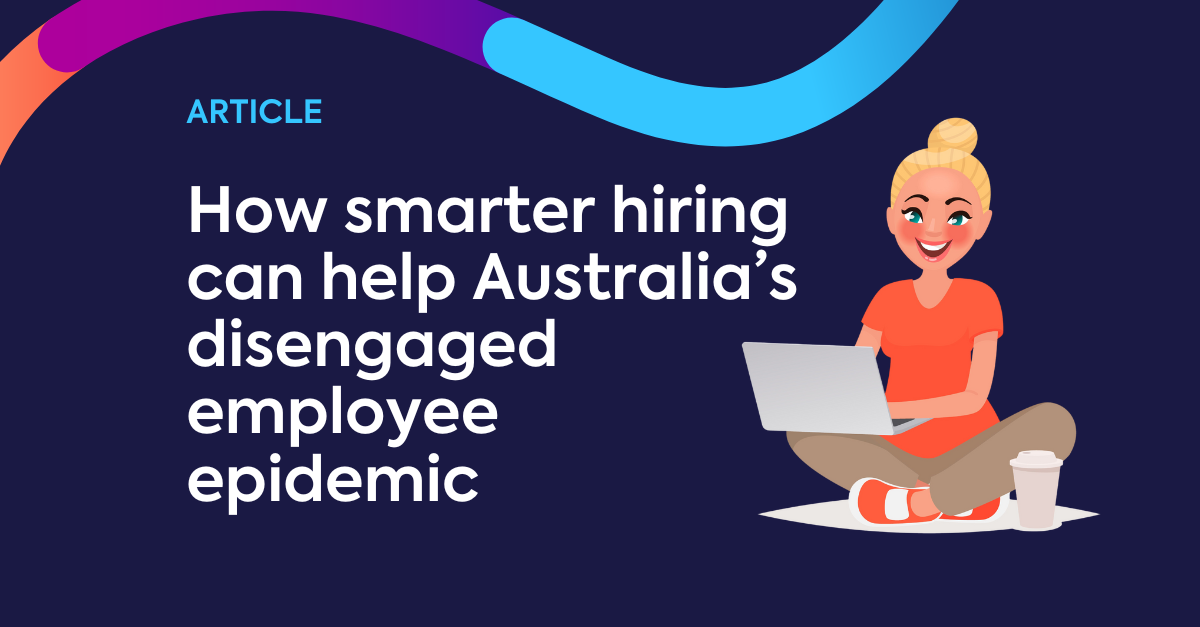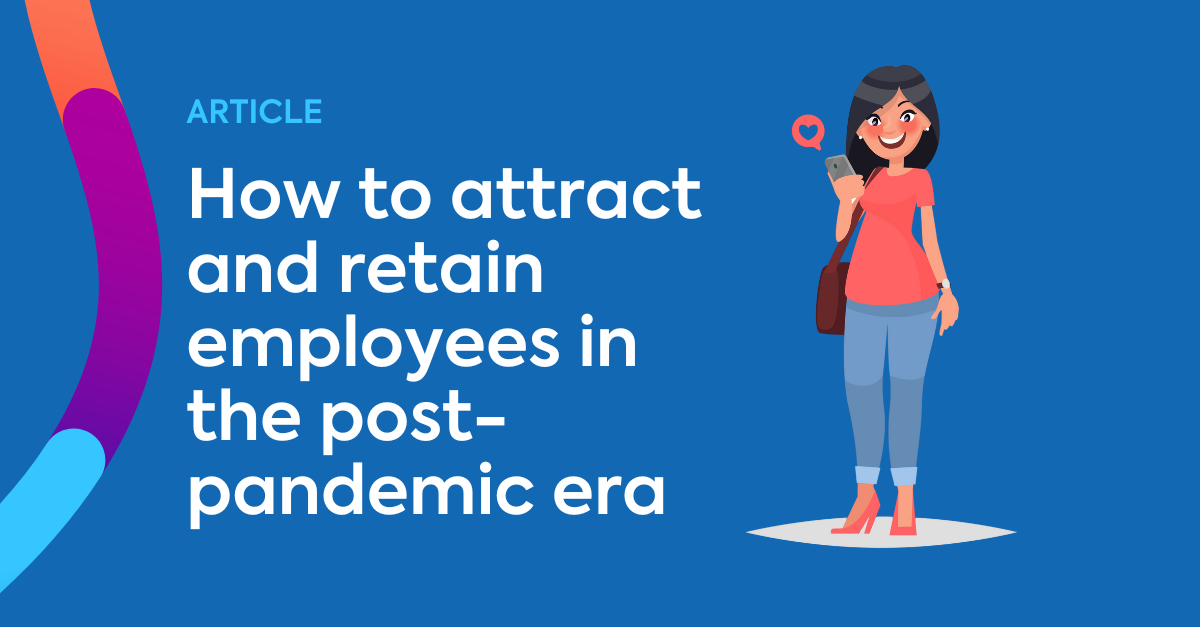How smarter hiring can help Australia’s disengaged employee epidemic
Globally, businesses are facing an epidemic of disengaged employees. A Gallup report revealed 71% of Australians are not engaged with their jobs and...
Become the expert on delivering
valid and fair assessments for
your training and education.
Hey Compono helps you understand your personality and how to turn it into your superpower.
First 1,000 users get 10 minutes free.
Just $15 a month after that — cancel anytime.
Much has been written about the ‘Great Resignation’ - the post-pandemic trend leading record numbers of people around the world to voluntarily exit from their roles. But while significant focus has been placed on the ‘departing’ aspects of the resignations, little has been said about the opportunities this can also present for employers.
Common consensus is that it’s likely the initial wave was largely and simply driven by a backlog of resignations as the uncertainty during the first year of the pandemic made workers hesitant to leave their roles. The continuing high volumes of resignations, however, suggest that there’s more at play and a profound shift has occurred in how employees think and feel about the work they do, and its role in their lives.
According to a survey1 we conducted at the beginning of this year, an incredible 86% of Australia’s white-collar workforce would indeed consider a new role in 2022.
The top reasons were:

The survey also revealed:
With unemployment rates at their lowest in several decades, businesses across Australia are already being impacted by an acute talent shortage.
Companies who not just survive but thrive will be those who take steps to understand the reasons why their employees leave and then introduce significant measures to prevent that from happening. Importantly, companies who do this well will also have the edge over their competitors by standing out to high-quality candidates who are looking for new roles.
The data showed a clear gap between how different generations are feeling about their jobs. Baby Boomers are the most likely to stay in their jobs for the next 12 months (33%), while Gen X are the most concerned about feeling undervalued (27%). Keeping Millennials in your workforce will mean focusing more on team cultural activities (19%) and paid parental leave (19%).
There is also a divide between the type of roles people hold and why they would leave their company. Non-managerial staff were much more likely to leave because of feeling undervalued (36%) and more than twice as likely as senior managers to feel that their career progression has slowed down (61% compared to 28%). Senior managers were more likely to leave due to a desire to move into a new field (39%) or start their own business (32%).

There’s no doubt that the current market is causing many challenges for businesses in attracting and retaining their workforce. Those who have the competitive advantage, however, will be those who face the challenges head on and take proactive measures.
At Compono we’ve always believed that an organisation’s sustained competitive advantage will always be their people - and our technology solutions have been built to help companies optimise how they hire, develop and engage their team.
Contact us if you’re interested in finding out more.
Research: Survey of 1,016 white collar professionals in Australia, conducted January 2022 by Compono in partnership with YouGov.

Compono Hire helps you predict job-fit and team-fit using behavioural science, so you can shortlist with confidence.
Request a demoBuilt for mid-market hiring teams.

Voice-first coaching that adapts to your personality. Get actionable steps you can take this week.
Start freeBuilt by Compono. Not therapy — practical behaviour change.

Globally, businesses are facing an epidemic of disengaged employees. A Gallup report revealed 71% of Australians are not engaged with their jobs and...

Worried about losing valuable employees? This guide will teach you how to master attrition risk. Learn actionable strategies for mastering attrition...
